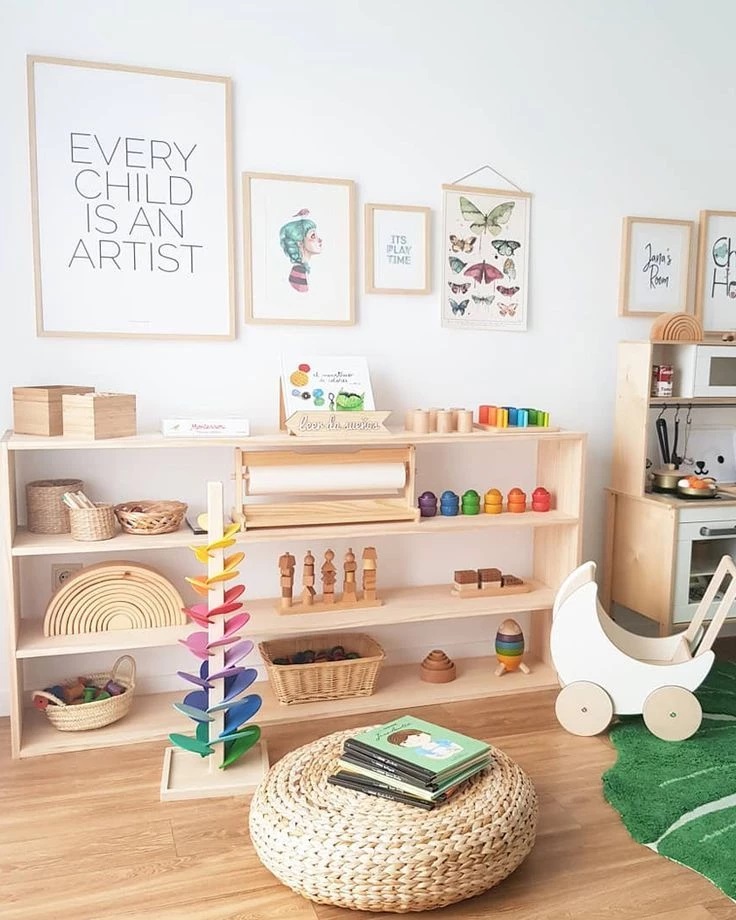Prepared Environment
A prepared environment provides structure and order in the classroom, which accurately reflects the sense of structure in day to day life. Maria Montessori believed there is a sensitive period of order between the ages of one and three. During this time they’re absorbing and forming an internal world based on the external environment. This structure allows them to work according to their own ability, building concentration in order to grow and learn. Having a routine and being repetitive is crucial in their understanding of feeling safe and having the ability to focus on their own needs in the classroom.
“An adult can assist in the shaping of the environment, but it is the child that perfects his own being.” – Maria Montessori
Normalization: Freedom of choice
The child is able to explore and choose individually what material they would like to work with. The shelves and works are set up to be easily used and accessible for their stature. By keeping the environment child-sized it reduces the need for assistance from the adult influences in the room and allows more self guided movements with independence and concentration. Taking works into their own space, a table or work mat, allows them to focus on what is their own task at hand. Observation is key for the teacher during this work period. You get to see what each individual child sensitive period may be, how they react to frustration, if they accept or give help to peers during their own observing of other students. Helping them through sensorial, practical life, language, etc. it allows the child to build independence, responsibilities, and self accomplishment.
”The children are working as if I did not exist.”- Maria Montessori
Social interaction
The best part of the classroom being a diverse age group is that it allows the older children to develop leadership habits while all the younger children follow their actions due to the positive, supportive influence of the older children. Activity in a Montessori classroom are “purposive”- able to be performed by a child for both social and selfish aspects. When children work this way it allows them to gain more independence as well as realizing their actions benefit others. Language is developed at a faster rate with younger children as they listen to older peers communicating amongst each other. As they become more socially aware respect and empathy develop when realizing appropriate times for certain behaviors.
“The education of even a small child, therefore, does not aim at preparing him for school, but for life.- Maria Montessori

